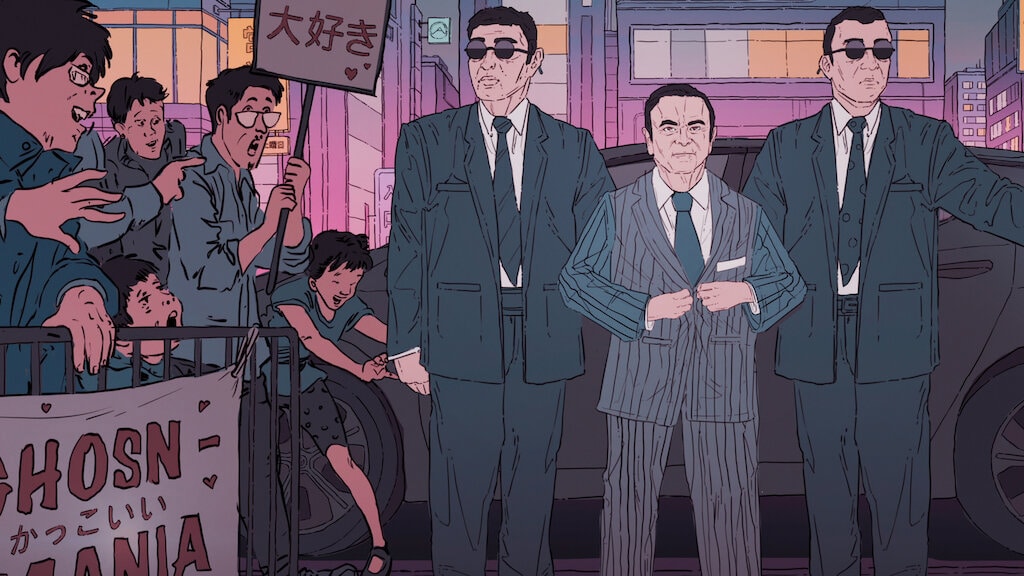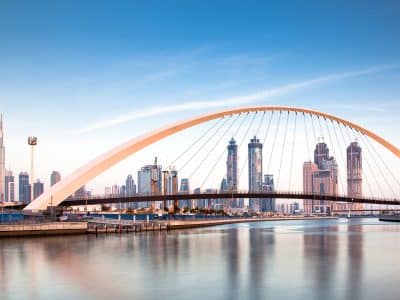Former auto industry titan Carlos Ghosn condemned what he called the “weaponisation of justice” in an exclusive interview with Arabian Business, stating that his dramatic fall from grace was the result of a coordinated effort by Japanese authorities and Nissan executives.
Ghosn, who has been living in Lebanon since his unprecedented escape from Japan in 2019, provided a detailed account of the events leading to his arrest and subsequent flight, painting a picture of corporate intrigue and nationalist agendas that he claims derailed one of the most successful alliances in automotive history.
“The weaponisation of justice, unfortunately, is becoming widespread and not limited anymore to dictatorship or countries which are not the most [democratic],” Ghosn told Arabian Business in a recent interview on the AB Majlis podcast. He argued that this trend extends beyond his case, affecting both economic and political spheres globally.
The former chairman of the Renault-Nissan-Mitsubishi alliance maintained his innocence and stated that the charges against him were fabricated as part of a “plot” to remove him from power and prevent closer integration between Renault and Nissan. Ghosn said that both the Japanese government and senior Nissan executives were complicit in his downfall.
“Having practiced [in] Japan for 19 years, nothing happened in Japan, particularly in the industry, without the approval of the head of the METI [Ministry of Economy, Trade and Industry],” Ghosn said. He added that his arrest would have required approval from high-ranking government officials, possibly including the Prime Minister’s office.
Ghosn’s comments come as he continues to fight legal battles on multiple fronts. While Japan seeks his extradition, he faces charges in France related to alleged financial misconduct at Renault. Ghosn expressed confidence in his ability to defend himself in the French courts, where he hopes to have a fairer hearing.
Renault, Nissan suffer post-Ghosn
The interview also touched on the state of the automotive alliance he once led. Ghosn claimed that both Nissan and Renault have suffered in his absence, with Nissan becoming “the shadow of what it used to be” and Renault significantly diminished in its global presence.
“Six years later, because in 2024 Nissan is in trouble, it is the shadow of what it used to be. Renault may not be in trouble, but it’s much smaller and much more continental than it was,” Ghosn said, arguing that the companies’ focus on control rather than growth has led to their decline.
Prior to Ghosn’s arrest, the Renault-Nissan-Mitsubishi alliance was one of the world’s largest automotive groups. Under Ghosn’s leadership, Nissan had been pulled back from the brink of bankruptcy in the late 1990s and early 2000s, earning him the nickname “Le Cost Killer” for his aggressive restructuring strategies. The alliance had become a model for international cooperation in the auto industry, with Ghosn serving as chairman of all three companies.
However, tensions had been brewing beneath the surface. Ghosn revealed that the 2015 Florange Law in France, which granted double voting rights to long-term shareholders, became a significant point of contention. The French government, a major Renault shareholder, increased its stake to ensure the law’s implementation, despite Ghosn’s opposition. This move, according to Ghosn, eroded trust between the French and Japanese sides of the alliance.
He also disclosed that he had been in negotiations with Fiat Chrysler for a potential merger in 2018, which would have created the world’s largest automotive group. These talks were abruptly halted by his arrest.
Netflix documentary was ‘sensationalist’
The former executive also commented on media portrayals of his story, particularly criticising a Netflix documentary as “sensationalist.” Ghosn participated in two other documentaries but chose not to be involved in the Netflix production.

The Netflix documentary, titled “Fugitive: The Curious Case of Carlos Ghosn,” was released in 2022 and drew criticism from Ghosn for its approach. He particularly took issue with what he perceived as a focus on sensationalism rather than substance.
“They spent 10 minutes in the documentary interviewing my femme de ménage [housemaid],” Ghosn noted, questioning the relevance of such content to the core issues of his case.
In contrast, Ghosn participated in two other documentaries: one produced by BBC and another by Apple TV+. He views these as more balanced portrayals of his story, though he maintained that the full truth of his case can only emerge through a fair trial process.
The complex saga of Carlos Ghosn continues to unfold across multiple jurisdictions, with legal proceedings ongoing in France and continued interest from Japanese authorities. As Ghosn remains in Lebanon, which does not have an extradition treaty with Japan, the case stands as a stark example of the intersections between corporate governance, international relations, and criminal justice systems in a globalised world.
Carlos Ghosn ‘not interested’ in Lebanese politics career
Despite calls from some quarters for him to enter Lebanese politics, Ghosn firmly rejected the idea of a political career. However, he expressed willingness to advise any legally elected government on economic recovery, drawing on his experience in corporate turnarounds.
Regarding Lebanon’s current crises, Ghosn advocated for establishing a “minimum state” focused on security, law, and sovereignty, followed by economic recovery efforts. He emphasized the potential for Lebanon to thrive without external aid if it can regain the trust of its citizens, including the large Lebanese diaspora.
On the ongoing conflict between Israel and Lebanon, Ghosn expressed sadness at the human cost and wasted potential. “I’m just very sad to see so much misery, such victims, and so much wasted talent and gifts,” he said, calling for a different approach to resolve the region’s issues.
Tune in to a new episode of AB Majlis every week
To listen to the full episode and gain a comprehensive understanding of doing business in the Gulf region, visit our RSS feed or check out AB Majlis on Spotify, Apple Podcasts, and other platforms.
Episodes are also available on:
Tune in every Monday for weekly episodes that will help you stay ahead of the curve and enrich your understanding of the Gulf region.
Subscribe to Arabian Business for more exclusive content.







